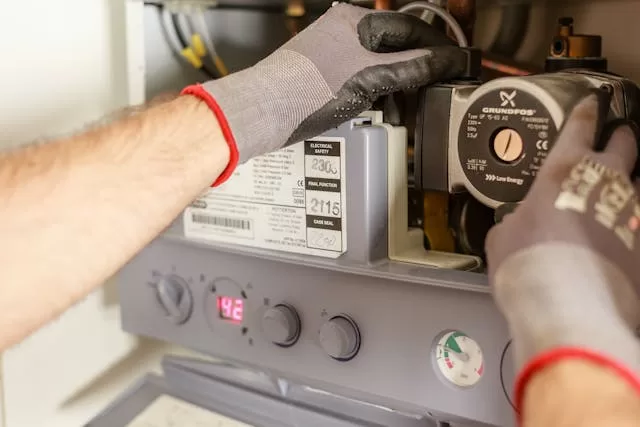
Finding effective ways to save on heating bills this winter is essential for households across the United States. As energy costs continue to fluctuate, understanding practical strategies can help you maintain a warm and comfortable home without overspending. With a few proactive measures, you can significantly reduce your energy expenses and still enjoy a cozy winter season.
Table of Contents
Upgrade Your Home Insulation to Save on Heating Bills
Upgrading your home insulation is one of the most efficient ways to save on heating bills. Proper insulation reduces heat loss, ensuring your home stays warmer for longer. Key areas to insulate include the attic, walls, and floors, as these are common spots where heat escapes.
Homeowners in the United States often overlook the importance of sealing gaps around windows and doors. Weatherstripping and caulking are affordable methods to enhance insulation and minimize drafts. Investing in high-quality insulation materials can lead to long-term savings on your energy bills.
Install a Programmable Thermostat for Maximum Savings
Installing a programmable thermostat is another smart way to save on heating bills this winter. These devices allow you to set specific temperatures for different times of the day, ensuring you’re not wasting energy when you’re asleep or away from home.
Many American households have turned to smart thermostats, which offer additional features like remote control via smartphone apps. These advanced systems learn your heating preferences over time, optimizing energy use while keeping your home comfortable. According to the Department of Energy, properly using a programmable thermostat can save you up to 10% annually on heating costs.
Embrace Energy-Efficient Heating Systems to Cut Costs
Switching to an energy-efficient heating system is one of the best ways to save on heating bills. Modern systems such as ENERGY STAR-certified furnaces and heat pumps consume less energy while delivering optimal performance. These systems are designed to meet stringent energy efficiency standards, making them an excellent investment for American households.
If replacing your heating system isn’t feasible, ensure your current system is running efficiently. Regular maintenance, such as cleaning filters and inspecting ducts, can significantly improve performance and reduce energy waste. Many utility companies in the U.S. also offer rebates for upgrading to energy-efficient appliances.
Use Space Heaters Wisely to Reduce Energy Use
Using space heaters strategically can help you save on heating bills, especially if you’re heating only a small area. Space heaters are ideal for supplemental heating in rooms you use frequently, allowing you to lower the thermostat for the rest of the house.
However, it’s crucial to use space heaters safely and efficiently. Opt for models with energy-saving features like timers and automatic shut-off. American households should also ensure proper placement to avoid fire hazards while maximizing heat distribution.
Seal Air Leaks to Prevent Heat Loss
Sealing air leaks is an effective and cost-efficient way to save on heating bills. Common sources of leaks include windows, doors, and gaps in the building envelope. Identifying and addressing these areas can make a noticeable difference in your home’s energy efficiency.
For homeowners in the U.S., simple measures like installing draft stoppers, using thermal curtains, and applying plastic window insulation kits can go a long way. Professional energy audits are also available to pinpoint hidden leaks and provide tailored solutions for your home.
Optimize Your Windows for Better Heat Retention
Windows play a significant role in heat retention, making them a key focus area for saving on heating bills. Double-pane or triple-pane windows with low-emissivity coatings are excellent for minimizing heat loss. For those on a budget, adding storm windows or window films can provide a cost-effective alternative.
Americans living in colder regions often use heavy curtains or blinds to retain heat. Opening curtains during sunny days and closing them at night helps to trap warmth, reducing the reliance on your heating system. Combining these techniques with proper insulation ensures maximum energy efficiency.
Leverage Tax Credits and Rebates for Energy Upgrades
Taking advantage of tax credits and rebates can significantly offset the cost of energy-efficient upgrades. In 2025, many U.S. federal and state programs continue to offer incentives for homeowners investing in energy-saving solutions like insulation, windows, and heating systems.
These programs not only reduce upfront costs but also encourage sustainable practices that lower your heating bills in the long run. Researching available incentives in your area is a worthwhile step for any American household aiming to cut energy expenses.
Layer Up and Adjust Your Habits for Savings
Adjusting your personal habits is a simple yet effective way to save on heating bills. Wearing layers of warm clothing and using blankets can reduce your dependence on the heating system. Lowering the thermostat by just a few degrees can result in significant savings over the winter months.
Many families in the U.S. incorporate energy-saving habits like turning off heating in unused rooms and using ceiling fans to circulate warm air. Small lifestyle changes can have a big impact on your overall energy consumption.
Utilize Renewable Energy Sources for Heating
Renewable energy sources, such as solar panels, offer a sustainable way to save on heating bills. Solar-powered heating systems harness the sun’s energy to provide warmth, reducing your reliance on traditional energy sources.
In 2025, many American households are exploring renewable energy options as part of their efforts to combat rising utility costs. While the initial investment can be high, long-term savings and environmental benefits make renewable energy a compelling choice.
Start Saving on Heating Bills Today
Reducing heating bills this winter doesn’t have to be complicated. By implementing a combination of insulation upgrades, energy-efficient systems, and smart habits, you can achieve significant savings while staying warm.
Explore resources like Energy.gov for additional tips and tools to enhance your home’s energy efficiency. With proactive measures, American households can enjoy a comfortable winter without breaking the bank.
